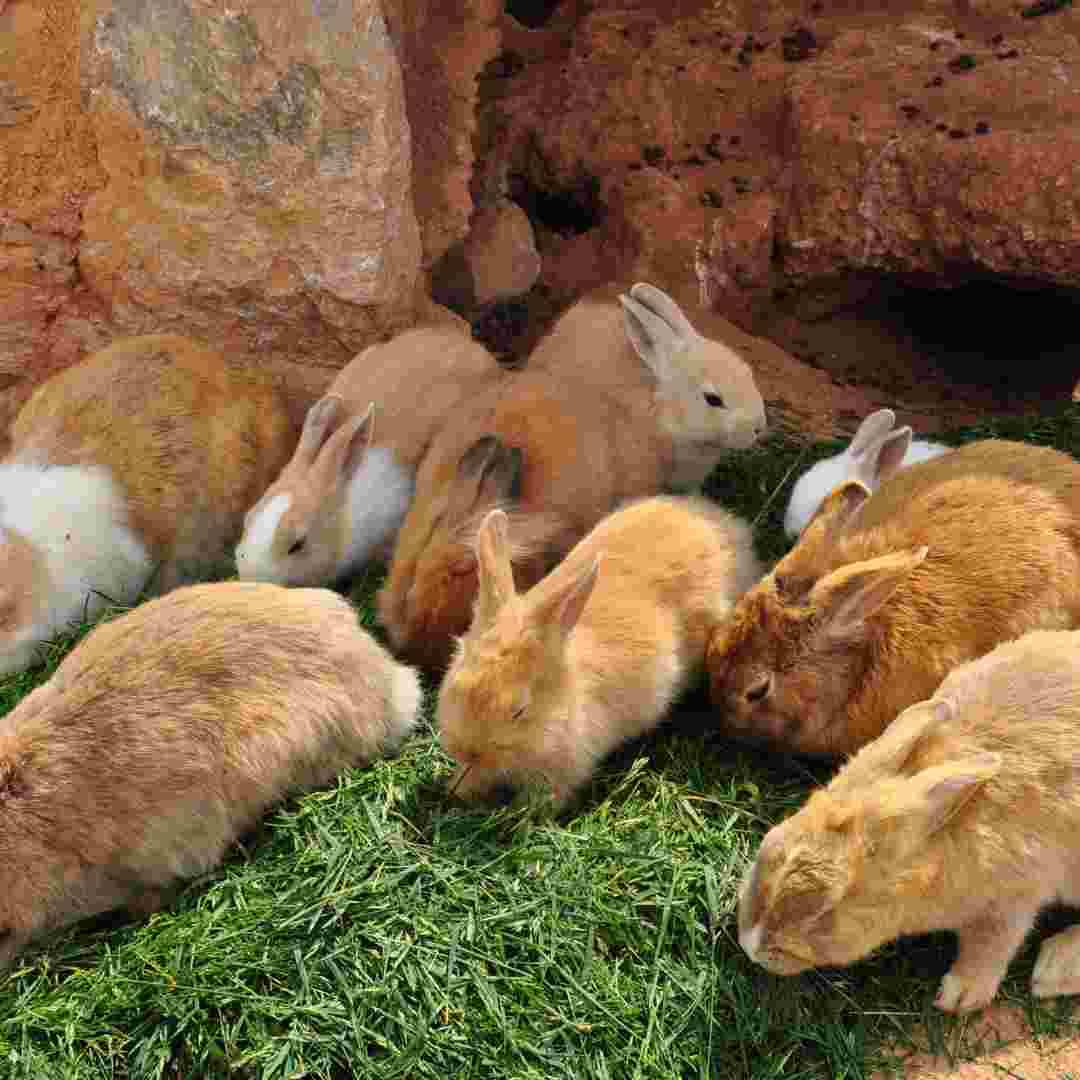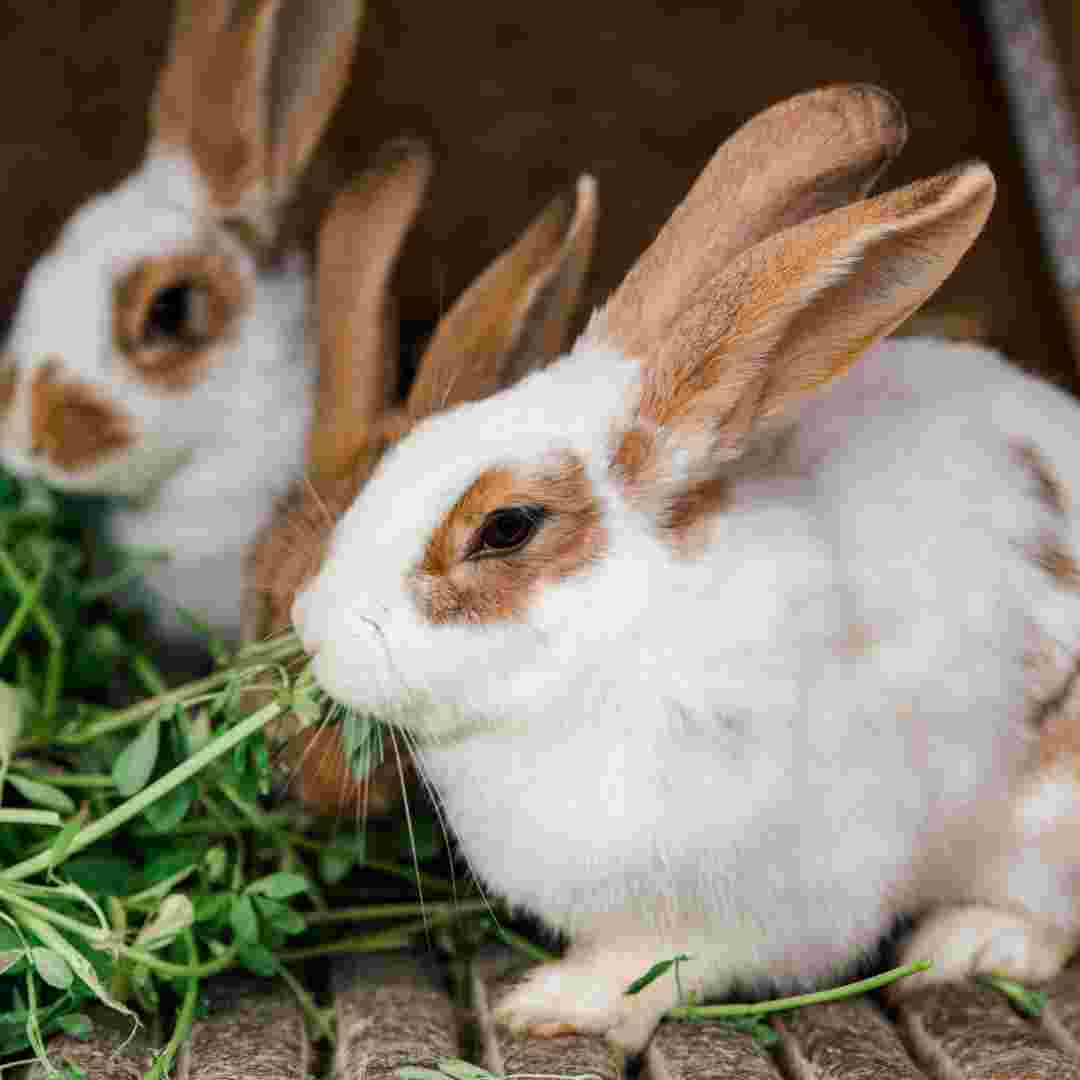Contents Table
Introduction
Basic Rabbit Nutrition: What Do They Eat?
Rabbits Benefit from Fresh Fruits and Vegetables
Rabbit pellet feeding pros and cons
Benefits of Hay for Rabbits
Rabbit Treats: What Should You Feed Your Rabbit?
Q&A
Conclusion
Introduction
Herbivores like rabbits eat plants. Fresh vegetables and hay are their favourite foods, but they also like fruits, grains, and flowers. A balanced diet is essential for rabbits since their digestive system extracts the most nutrients from their food. A nutritious diet may keep rabbits happy and healthy for years.
Basic Rabbit Nutrition: What Do They Eat?
Rabbits need a special diet to keep healthy and happy. Any rabbit owner must understand rabbit diet. What do rabbits eat? and why your pet needs a balanced diet are covered in this article.
Only plants are eaten by herbivore rabbits. Hay, fresh vegetables, and a few pellets should be their diet. A rabbit's diet should be mostly hay, which provides fibre and aids digestion. Fresh vegetables might create digestive difficulties if fed in excess. Pellets are high in calories and can cause obesity, therefore offer them in small amounts.
Your rabbit needs a balanced diet. This entails offering pellets, fresh veggies, and hay. Hay should be their main food because it contains fibre and aids digestion. Fresh vegetables might create digestive difficulties if fed in excess. Pellets are high in calories and can cause obesity, therefore offer them in small amounts.
In addition to a healthy diet, rabbits need clean water. Daily water changes and bowl cleaning are recommended.
These suggestions will guarantee your rabbit gets the nutrition it needs to keep healthy and happy. Rabbit owners must provide a balanced feed and clean water.
Rabbits Benefit from Fresh Fruits and Vegetables
Rabbits are cherished pets that need a balanced diet to prosper. A rabbit's diet includes hay and pellets, but fresh fruits and vegetables can improve it. Here are the benefits of feeding rabbits fresh produce.
Fresh fruits and vegetables contain vitamins and minerals that hay and pellets lack. Vitamins A, C, and E, calcium, phosphorus, and potassium are abundant in fruits and vegetables. These nutrients are vital to rabbit health and can avoid obesity, dental, and digestive concerns.
Secondly, fresh produce can stimulate rabbits' minds. Rabbits are curious and like novel foods. A variety of fresh fruits and vegetables helps keep rabbits cognitively occupied and prevent boredom.
Rabbits may stay healthy by eating fresh produce. Low-calorie, high-fiber fruits and vegetables can help rabbits feel full without eating too much. It can prevent rabbit obesity, a common issue.
Finally, fresh produce helps bunnies bond with their owners. Offering fresh fruits and vegetables might help rabbits bond with their owners. This can strengthen the rabbit-owner bond and improve the rabbit's health.
In conclusion, feeding rabbits fresh produce has several benefits. They provide vitamins and minerals, mental stimulation, weight management, and a close rabbit-owner tie. Rabbits need fresh fruits and vegetables for these reasons.
Rabbit pellet feeding pros and cons
Many rabbit owners feed pellets, but it's crucial to know the pros and cons before feeding them.
Pros
Feeding rabbits pellets is beneficial since they are nutritionally balanced. Pellets give rabbits all the vitamins and minerals they need to stay healthy. They also make it easy to feed rabbits enough each day.
Easy storage and transport are other pellet benefits. Pellets come in many sizes and may be bought in bulk, making them affordable for rabbit owners.
Cons
High carbohydrate content is a downside of rabbit pellets. Lack of exercise can cause weight gain and other health issues in rabbits.
Dietary pellets can also bore rabbits. They may get bored with the same food every day and not get enough variation in flavours and textures.
Finally, pellets cost. While convenient, they may not be the most cost-effective alternative for rabbit owners on a budget.
Feeding rabbits pellets can be convenient and nutritious, but weigh the advantages and downsides before choosing.
Benefits of Hay for Rabbits
Herbivorous rabbits need hay to keep healthy and happy. Rabbits need limitless hay. Hay helps rabbits digest, maintain teeth, and provide critical nutrients.
Rabbits get critical nutrients from hay. Its high fibre content supports a healthy digestive tract. Hay contains critical vitamins and minerals like calcium, phosphorus, and vitamin A for rabbits. Due to its low calorie content, hay helps rabbits avoid obesity.
Hay aids rabbit digestion. High fibre content prevents constipation and diarrhoea by maintaining digestive system function. Hay boosts saliva production, which promotes digestion.
Finally, rabbit teeth benefit from hay. Hay wears down rabbit teeth, which grow throughout their lives. It prevents overgrowth, which can cause dental pain.
In conclusion, rabbits need endless hay. Hay helps rabbits digest, maintain teeth, and provide critical nutrients.
Rabbit Treats: What Should You Feed Your Rabbit?
A healthy rabbit diet includes hay, fresh veggies, and a little pellets. Avoid giving rabbits more than 10% of their food in treats. Treats can help you bond with your rabbit and provide them different tastes and textures.
Safe, nutritious treats for your rabbit are essential. Safe and healthful rabbit treats include:
Fresh vegetables: Carrots, celery, bell peppers, and others are vitamin and mineral-rich.
Apples, bananas, and other fruits are packed with natural sugars and can be fed to your rabbit.
The rabbit can enjoy parsley, basil, and other herbs, which are rich in vitamins and minerals.
Almonds, walnuts, and other nuts provide protein and healthful lipids.
Seeds: Pumpkin, sunflower, and other seeds are rich in vitamins and minerals.
• Hay: Timothy, oat, and other hays are fiber-rich treats for rabbits.
Give your rabbit treats sparingly. Too many sweets can cause obesity and other health issues. Also, rabbit treats should not replace their usual diet.
Overall, treats can help you bond with your rabbit and provide them different tastes and textures. Safe, nutritious treats for your rabbit are essential. Rabbit treats should be supplied sparingly and not replace their diet.

Q&A
What do rabbits eat?
A: Rabbits eat hay, fresh veggies, and pellets because they are herbivores.
2. What kind of rabbit hay should I feed?
A: Timothy hay is best for rabbits. Its high fibre and low protein and calcium content keeps your rabbit healthy.
3. What vegetables should my rabbit eat?
A: Rabbits can eat carrots, broccoli, kale, and spinach.
4. Can I feed my rabbit fruit?
A: You can feed your rabbit apples, bananas, and strawberries in little amounts.
5. What things should I avoid giving my rabbit?
A: Avoid feeding your rabbit sugary or fatty items like candy, chips, and nuts.
Conclusion
Herbivores like rabbits eat plants. Hay, fresh vegetables, and leafy greens are their main diets. They occasionally eat fruits, nuts, and seeds. Rabbits need a balanced diet to stay healthy and happy.
